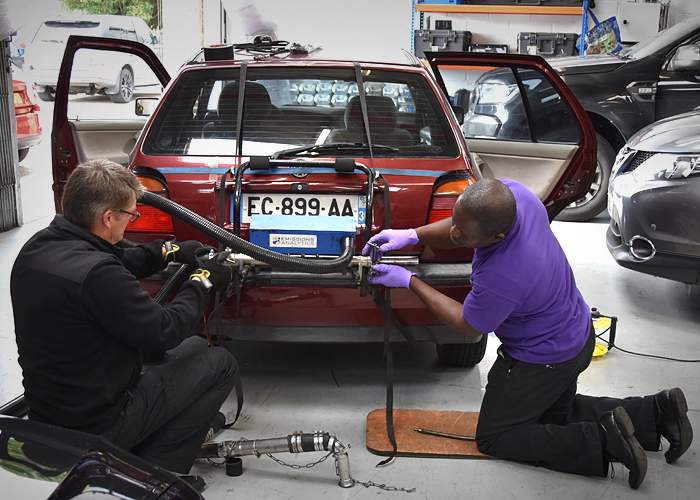
If your car breaks down or is damaged and you need to take it into a garage for repair, chances are that you will require some parts to be replaced. When your garage of choice is ordering in the parts necessary to make the repairs, they will have two options: genuine OEM parts, and aftermarket parts.
So what is the difference, and which should you choose? If those terms don’t mean anything to you, then don’t worry as we’ve got you covered. Read on to find out what the difference is and which you should opt for your own vehicle.
What is the difference?
Genuine OEM parts are parts that are made by the manufacturer of your specific vehicle. They are made to fit your specific make and model of car and will fit and perform in the same way as the original part it rolled off the production line with.
Aftermarket replacement parts are any part that is not made by your car’s official manufacturer, and there are a huge number of different manufacturers who make aftermarket parts. This means that quality can vary wildly, and unless you have a good knowledge of different manufacturers you may not really know what you’re getting.
In some cases, these replacement parts are just made from cheaper materials to cut costs and provide a cheaper part, but there is also a huge market for performance parts which have been specifically reverse engineered to iron out flaws with the original part, or alter performance according to preference.
Typically, those who choose to make these sorts of modifications are serious car enthusiasts who do more with their cars than the average driver using it to get from A to B. Many will simply swap out parts to alter the way their car handles, but some modifications are unnecessary or even illegal. For the purpose of this comparison, however, we will just focus on stock parts rather than performance upgrades.
Which should you choose?
We spoke to VW Motor Parts who told us “the main thing that the average driver should take into account when choosing replacement parts for their vehicle is safety. Official parts have to pass safety tests before they can be sold, and you have the peace of mind of always knowing what you are buying.”
People should be especially careful to avoid buying parts from untrustworthy sources, particularly parts that are integral to your safety should you be involved in an accident. In 2017 a man was charged in Dorset for selling counterfeit airbags. The consequences of using such parts could be catastrophic in the event of a collision, so it is always prudent to put safety first and pay that little bit extra for the official part.
Aftermarket parts are often made to fit a number of different makes and models of vehicle, which can mean that they may not perform in quite the same way that the original part did or fit as well. This can cause further problems down the line, and if the parts are made from cheap materials they may need replacing more often than the official part would have done, meaning that over time they could end up costing you just as much if not more money than the official part would have.
We hope that this has given you a little more insight into the world of aftermarket and genuine car parts if you have felt a little in the dark on the subject.